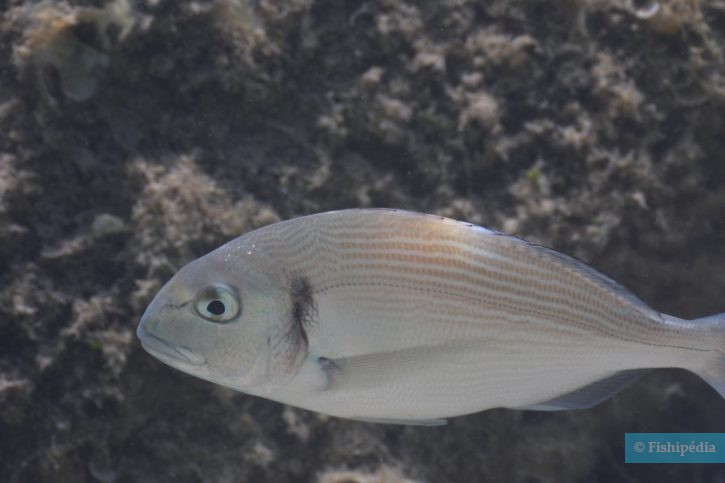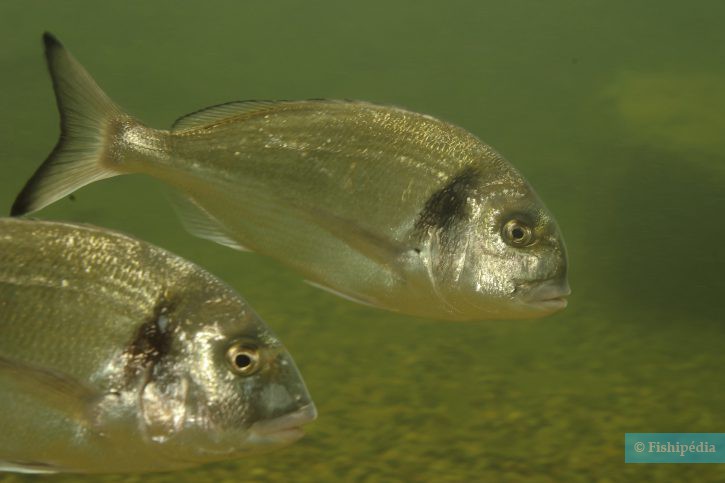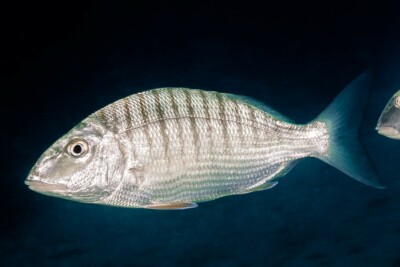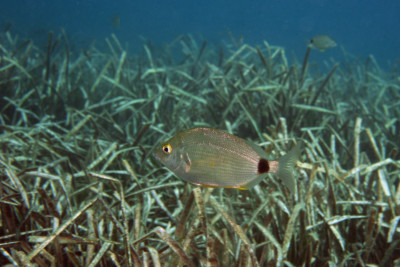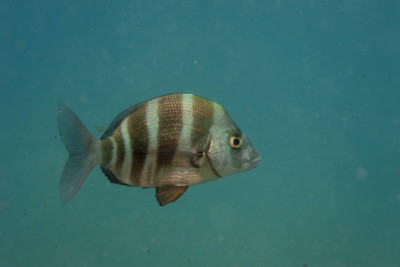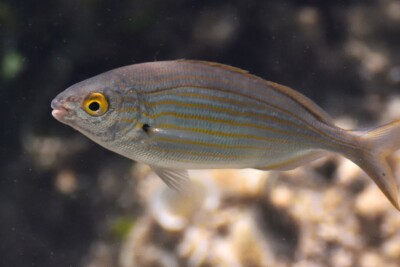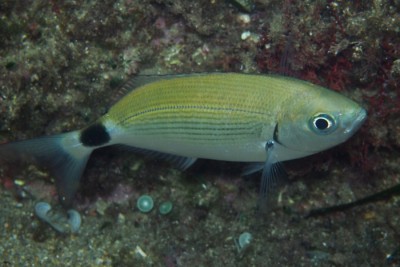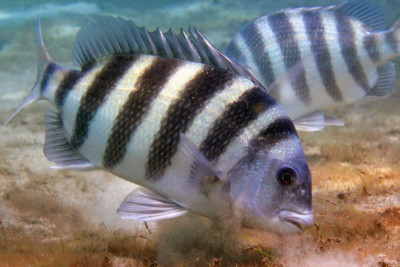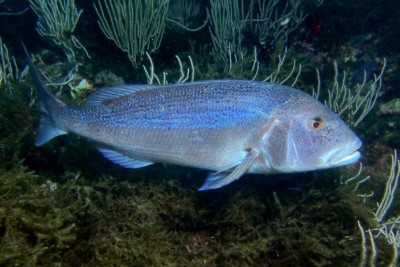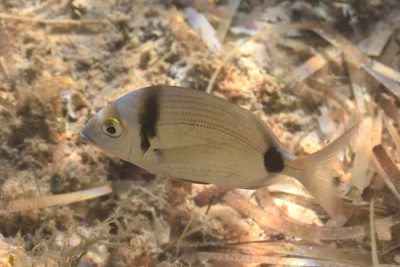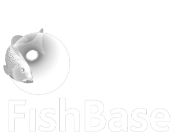gilthead seabream
| Scientific name | Sparus aurata |
|---|---|
| Descriptor | Linnaeus |
| Year of description | 1758 |
| IUCN category (World) | LC |
| Family | Sparidae |
| Genus | Sparus |
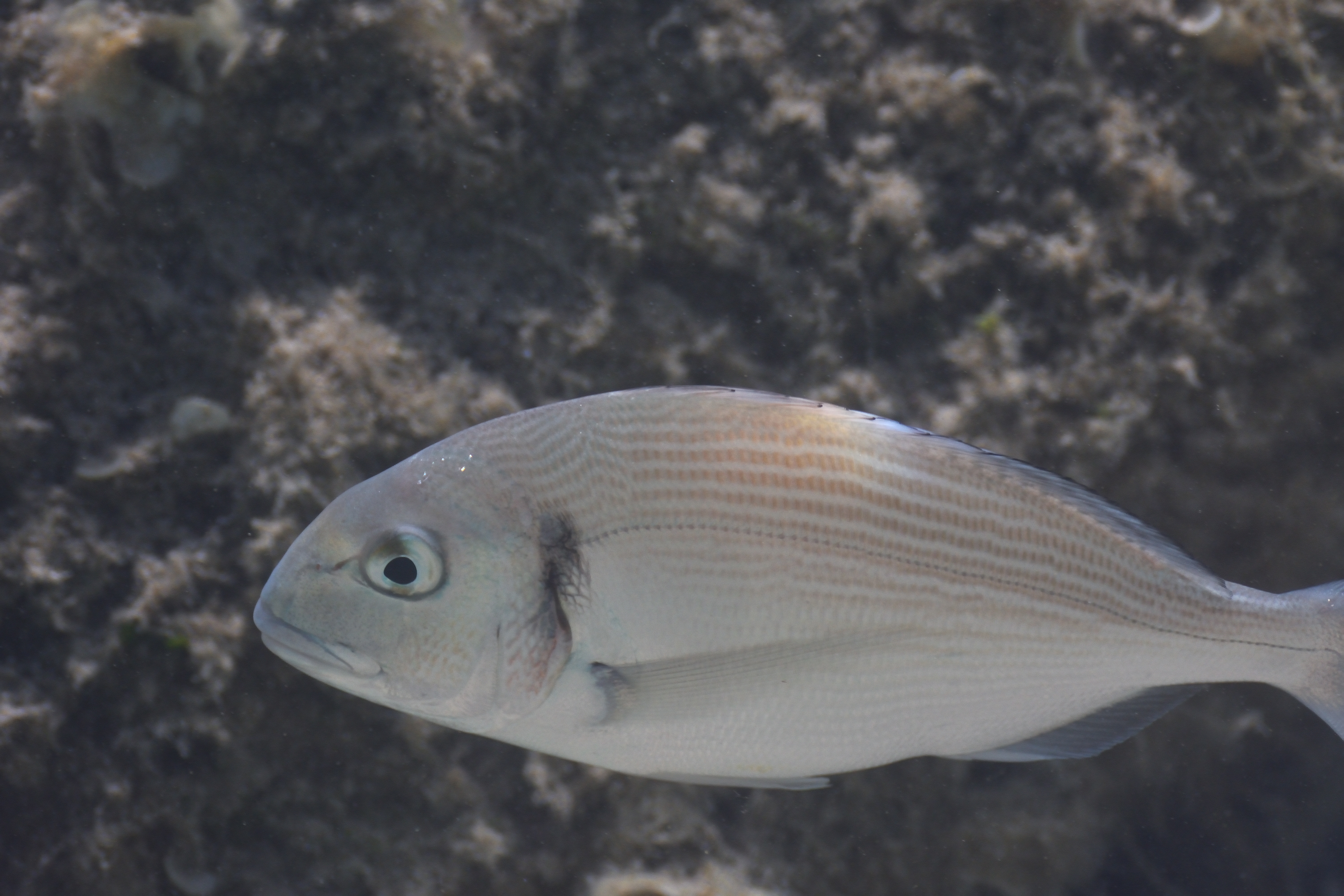

Introduction
Sparus aurata, commonly known as gilthead seabream, is a salt water fish.
This sheet is currently being prepared. The texts currently proposed come from our data model or are being drafted. To request priority for this content, you can write to us HERE.
Who is it?
Morphology
-
Type
-
Average size50 cm
-
Maximum size70 cm
-
Longevity25 year
-
ShapeOvoid
-
Type
-
Average size50 cm
-
Maximum size70 cm
-
Longevity25 year
-
ShapeOvoid
How to recognize This fish ?
The gilthead seabream measures between 50 and 70 cm. This fish is unicolore with a predominantly gris body.
Behaviour & Life cycle
-
dietcarnivorous
-
Sociabilityliving in shoals
-
territorialNo
-
Way of livingdiurnal
The gilthead seabream is a fish living in shoals. This species is carnivorous .
Although the gilthead seabream is non-territorial, it is sometimes aggressive towards other species.
Reproduction
-
Reproductionovipare qui pond en eau libre
-
Hermaphroditeprotandric
The gilthead seabream is a fish ovipare qui pond en eau libre. This fish always born male. Growing up, individuals will change sex to become female, this is called successive hermaphroditism of the protandrous type.
Harmless species
This species does not represent any particular threats to humans when encountered in its natural environment.
Origin and distribution

What is its habitat?
Natural environment characteristics
-
Depth1 - 150 m
-
FlowMedium and Slow
Biotope presentation
The gilthead seabream is most often found at a depth between 1m and 150m. However, it is not impossible to find this species at other depths.
Species of the same biotope
Fishkeeping
Not recommended
We do not recommend keeping this species in an aquarium. It has unpredictable needs which, if not met, generate significant stress, potentially leading to a shorter life expectancy, an interruption of its growth or the development of pathogens.
To go further
Sources & Contributions
Participation & Validation
The Fishipedia team and specialist contributors are committed to providing high-quality content. However, although the information comes from scientific sources or testimonials from specialists, the cards may contain inaccuracies.

Yuhei Nakata

Benoit Chartrer

Garnier Julie

Théo Guillaume

Adrien Falzon
Translation
Translation done with the valuable contribution of our translators, who make this information available to a wider audience. We sincerely thank them for their commitment.
Bibliographic references
Factors influencing effective population size in commercial populations of gilthead seabream, Sparus aurata - R. Cameron Brown - John A. Woolliams - Brendan J. McAndrew - Elsevier Ltd - 2005.
The effects of photoperiod and water exchange rate on growth and survival of gilthead sea bream (Sparus aurata, Linnaeus; Sparidae) from hatching to metamorphosis in mass rearing systems - Amos Tandler - Sarah Helps - Elsevier Ltd - 1985.
Long-term exposure to microplastics induces oxidative stress and a pro-inflammatory response in the gut of Sparus aurata Linnaeus, 1758 - Antònia Solomando - Xavier Capó - Carme Alomar - Elvira Álvarez - Montserrat Compa - José María Valencia - Samuel Pinya - Salud Deudero - Antoni Sureda - Elsevier Ltd - 2020.
Effect of temperature on the development of skeletal deformities in Gilthead seabream (Sparus aurata Linnaeus, 1758) - E.Georgakopoulou - P.Katharios - P.Divanach - G.Koumoundouros - Elsevier Ltd - 2010.
Scientific partners
Tags
Species of the same family
Species of the same biotope
